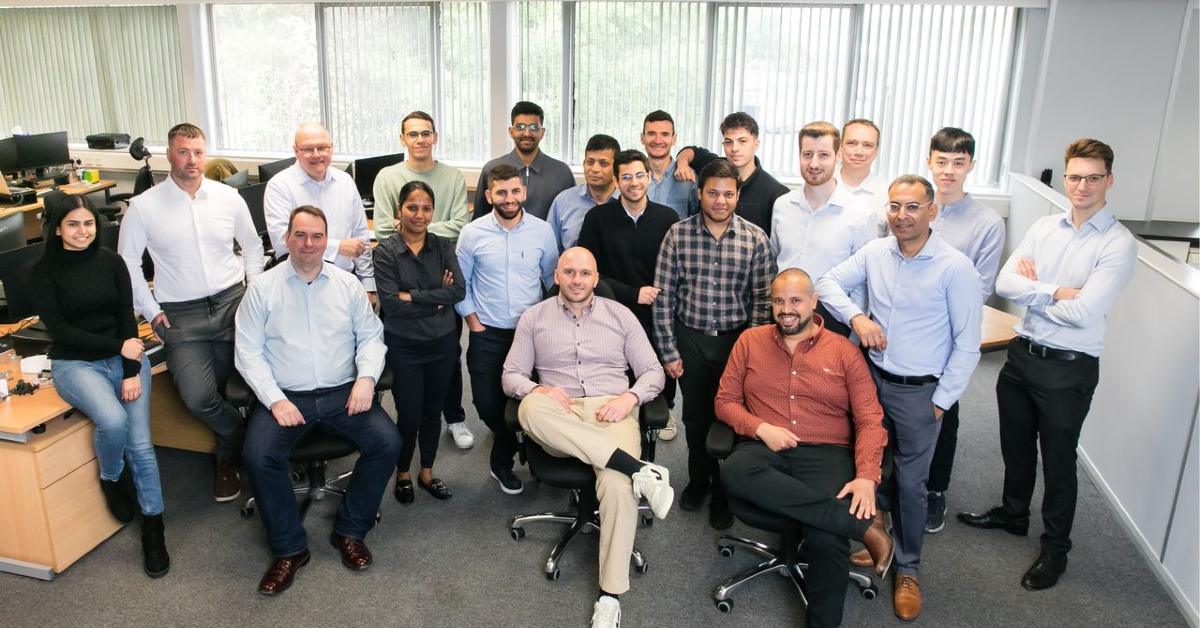QuiX Quantum, a startup based in Enschede, the Netherlands, has developed a photonic quantum processor.
Recently, researchers were able to successfully demonstrate the on-chip creation of Greenberger-Horne-Zeilinger (GHZ) states using QuiX Quantum technology, which is a crucial component for advancing photonic quantum computing.
This establishes QuiX Quantum’s integrated technology as the leading platform for photonic quantum computing and validates the company’s roadmap to deliver a scalable universal quantum computer.
What is GHZ state?
A GHZ state involves entanglement across three photonic qubits, serving as the essential unit for building a more complex entangled structure called a resource state.
Without the initial GHZ state, constructing this larger structure and performing computations would be impossible.
The ability to produce and maintain GHZ states, enabled by QuiX Quantum’s technology, is critical for scaling quantum computers.
Dr.-Ing. Stefan Hengesbach, CEO of QuiX Quantum, says, “The creation of GHZ states on our hardware is a pivotal milestone for the entire photonic quantum computing industry, signifying a crucial validation towards achieving a scalable universal quantum computer with flying qubits.”
He adds, “This milestone demonstrates the capability of photonic quantum computers to generate multi-photon entanglement in a way that advances the roadmap toward large-scale quantum computation.”
Why GHZ states?
Photonic quantum computers are designed to carry information at light speed, which requires the creation of GHZ states.
Unlike matter-based quantum computers, where qubits are stationary and typically positioned on a specialised chip, photonic quantum computers use flying qubits of light to process and transmit information.
These flying qubits are in a constant state of flux and are passed from one state to another through a process known as quantum teleportation.
The GHZ states are essential to the computer’s ability to maintain this information, making it a critical resource in the world of quantum computing.
Chief Scientist of QuiX Quantum and contributing author of the research paper, Dr. Jelmer Renema, comments, “I am thrilled to witness QuiX Quantum’s technology potential being transformed into such conclusive validation. This is a critical step needed in creating scalable photonic quantum computers. The next challenge is now making many of these devices.”
“When comparing one GHZ state to a million GHZ states, think of it as the spark needed to create a blazing fire. The more GHZ states a photonic quantum computer contains, the more powerful it becomes,” adds Renema.
QuiX Quantum: Igniting a Quantum Revolution
QuiX Quantum was founded in 2019 by Dr. Hans van den Vlekkert, a veteran of the photonics industry and serial entrepreneur, Dr. Jelmer Renema, an expert in quantum photonics, and a team of professors from the University of Twente.
The company focuses on the development of quantum computing using integrated photonics. QuiX’s goal is to disrupt quantum computing with its “high-tech”, scalable, future-proof, plug-and-play integrated photonic solutions
Currently, the company is building the first universal photonic quantum computer in Europe, with the first sale to the German Aerospace Center (DLR).










01
From telecom veteran to Dutch Startup Visa success: The Jignesh Dave story